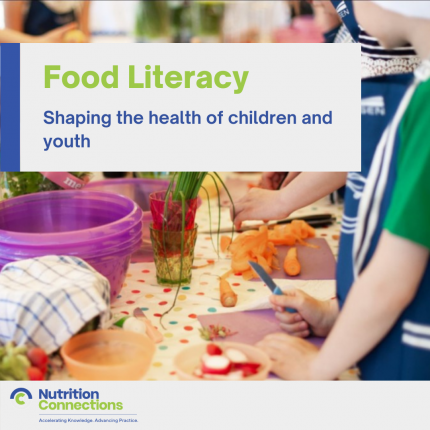Nutrition Connections report on Food Literacy: Shaping the Health of Children and Youth
Posted: January 5, 2021
Categories: Edible Education Network / Good Food Ideas for Kids / GoodFoodBites / School Food News / Schools
 Nutrition Connections has released a report documenting the proceedings and outcomes of a virtual workshop they held last year, Food Literacy: Shaping the Health of Children and Youth.
Nutrition Connections has released a report documenting the proceedings and outcomes of a virtual workshop they held last year, Food Literacy: Shaping the Health of Children and Youth.
The meeting brought together food literacy experts, researchers, policy makers and practitioners to discuss and identify priorities for food literacy research, policy and programming. Identified policy priorities include providing food literacy as part of the mandatory curriculum in schools, as well as implementation of a National School Food Program.
Access the report and the recordings from the workshop here.
A food literacy network, which could be centrally coordinated by Nutrition Connections, was identified as a potential opportunity to build consensus and create actionable initiatives to advance the food literacy priorities identified that would benefit the health and well-being of children, youth and families.
The next steps identified a need to fund the initial work of forming a food literacy collaborative partnership. This led to Nutrition Connections working with several academic and partner organizations to submit a proposal in December 2020 to the Social Sciences and Humanities Research Council (SSHRC) – Partnership Development Grant stream for a three-year project to develop a food literacy collaborative partnership. The overall goal for this partnership is to bring together food literacy researchers, program facilitators and advocates to strengthen relationships and enable more collaborative efforts among partners in different sectors.
View the full report on the Nutrition Connections website here, which includes the identified priorities, next steps and presentation summaries. Presentations from the workshop include:
- Food and eating trends in children and families: what do we know?
- Comprehensive policy actions impacting food literacy
- Research in Canada on food literacy in children and youth and policy implications
- Food Marketing and Children’s Health
- Stories from the field; program and practice implications
